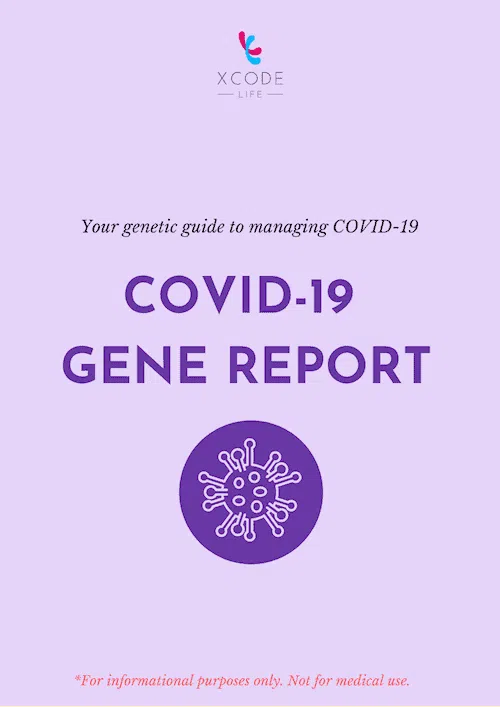Reports
Health
Wellness

Hydroxychloroquine is an immunomodulatory (a chemical agent that modifies immune responses) drug, which has been shown to be associated with blocking viral entry into host cells. It has been used to treat malarial infections, rheumatoid arthritis, and lupus. A systematic review conducted provided support for the use of chloroquine and hydroxychloroquine among patients with COVID-19. Multiple clinical trials are currently being conducted to identify the effect of hydroxychloroquine. The drug is currently in use for other diseases/conditions, and certain research studies have shown that people with certain genetic types have a better response to this drug than others.
Dexamethasone is a corticosteroid medication that is used for chronic obstructive lung disease, rheumatoid problems, or certain types of allergies. In a controlled clinical trial conducted in the UK, treatment with this drug was shown to reduce mortality rates by a third among COVID-19 patients on ventilators. The recovery trial included 2100 COVID-19 patients who received mild to moderate dosages every day. It was found to be effective in critically ill patients. People with certain genetic types may have a higher risk of side effects like low serum albumin, higher cholesterol levels, or osteonecrosis due to dexamethasone use.
Bacillus Calmette-Guerin (BCG) is widely used against tuberculosis but provides only partial and inconsistent immunity. The discrepancy in immunity levels between individuals may be due to different BCG vaccine strains, prior exposure to environmental mycobacteria, and host genetics. BCG vaccines have previously been used to treat infections like yellow fever. Research has shown that host genetic factors play an essential role in immunity after BCG vaccination. Certain genes in the TLR pathway that activates the cascade of immune reaction are associated with immunity post-BCG vaccination. People with certain genetic types may have increased immunity to certain viral infections post BCG vaccination.
The severe acute respiratory syndrome coronavirus 2 (SARS-CoV-2) pandemic has shown clinical variations in severity among individuals, which is partly due to differences in host genetic factors. Research has shown that genetic variants associated with host cell entry, production of cytokines, and immune response are associated with the severity of the infection. Individuals with the HLA-B*46-01 allele were associated with higher infection severity during the 2003 SARS outbreak. Research on UK Biobank (UKB) data has identified certain genetic factors associated with COVID-19 severity. People with certain genetic types have a higher risk of severe COVID19 symptoms when exposed to the virus.
Vitamin D is essential for the absorption of calcium from the intestines and the normal functioning of the immune system. Research studies have shown a protective role of vitamin D against respiratory infections. Vitamin D mediated mechanisms lower viral replication while increasing anti-inflammatory cytokines and lowering pro-inflammatory cytokines that may result in inflammation-mediated pneumonia. Our body can synthesize vitamin D from cholesterol when the skin is exposed to adequate amounts of sunlight. Preliminary studies have shown a significant association between vitamin D deficiency and increased severity of COVID-19. People with certain genetic types need more vitamin D in their diet.
The human body cannot synthesize vitamin C, and thus, it must be acquired through dietary sources. Vitamin C is a potent antioxidant and is essential for enhanced immunity. Research studies have shown an association between vitamin C deficiency and pneumonia. Administration of vitamin C may help prevent and relieve symptoms of flu and may also help lower the duration of the common cold. Similarly, vitamin C supplementation may help support immune system among people who are deficient and at risk of COVID-19. People with certain genetic types need more vitamin C in their diet due to lower levels in the body.
Vitamin A has been known to support immune functions like apoptosis, antibody production, and functioning of T and B cells, and macrophages. Vitamin A deficiency is associated with a higher risk of viral infections and lower immune response. Animal sources provide vitamin A in the form of retinol, an active vitamin A derivative. In contrast, some plant sources provide the precursor of vitamin A in the form of carotenes, which in turn must be converted to retinol. People with certain genetic types need more vitamin A in their diet due to less efficient conversion of carotenoids to retinol.
Selenium is an integral part of the body's defense against viral infections. It protects the body against different viruses through the synthesis of antioxidant enzymes. The deficiency of selenium is associated with increased susceptibility to viral infections. There are also some ongoing studies investigating its role in cognitive health and cancer risk. Selenium is bound to organic molecules and forms an essential group of proteins called selenoproteins. Selenoproteins include superoxide dismutase (SOD), vitamin E, catalase (CAT), glutathione (GSH), carotenoids, and ascorbic acid, and are important in the antioxidant defense systems. People with certain genetic types may benefit from selenium supplementation.
Zinc plays a vital role in the proper functioning of the immune system, cell division, cell growth, and the breakdown of carbohydrates. Zinc is also essential for the senses of taste and smell. This micronutrient is associated with most enzymatic functions of more than 300 enzymes and is essential for the normal functioning and development of cells that regulate nonspecific immunity (the defense system we are born with). Zinc is also associated with the development of acquired immunity, with deficiency impairing antiviral immunity. People with certain genetic types need more zinc in their diet due to lower absorption in the body.
Selenium is an integral part of the body's defense against viral infections. It protects the body against different viruses through the synthesis of antioxidant enzymes. The deficiency of selenium is associated with increased susceptibility to viral infections. There are also some ongoing studies investigating its role in cognitive health and cancer risk. Selenium is bound to organic molecules and forms an essential group of proteins called selenoproteins. Selenoproteins include superoxide dismutase (SOD), vitamin E, catalase (CAT), glutathione (GSH), carotenoids, and ascorbic acid, and are important in the antioxidant defense systems. People with certain genetic types may benefit from selenium supplementation.
COVID-19 is associated with severe pneumonia and progression to acute respiratory distress syndrome (ARDS), particularly among individuals who are immune-compromised and the elderly. Research has shown that gut microbiota may be associated with the pathogenesis of ARDS. It is hypothesized that a possible gut-lung connection may influence the clinical manifestation of COVID19. An estimated 60% of patients with COVID-19 show symptoms of gastrointestinal disturbance like diarrhea, vomiting, and nausea. Bifidobacterium Sp is a vital gut commensal that helps in digestion and prevents the colonization of pathogenic bacteria. People with certain genetic types have a higher tendency for improved growth of Bifidobacterium.
Restless Leg Syndrome (also known as Willis-Ekbom Disease) is a neurologic and sleep-related movement disorder characterized by an irresistible urge to move in the legs, which typically occurs or worsens at rest. People with restless leg syndrome may experience abnormal, uncomfortable sensations (paresthesias or dysesthesias) that are often likened to cramping, crawling, burning, aching, itching, or prickling deep within the affected areas. Certain genetic variants in MEIS1, PTPRD, BTBD9, MAP2K5, and other genes might influence the risk of developing restless legs syndrome. It has been shown that a family member with this condition increases the risk for another member by 60%.
